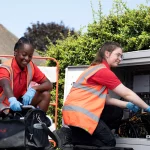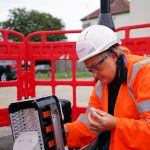New UK Digital Strategy Sees Government Reiterate Broadband and 5G Pledges
The Government has today set out their future Digital Strategy for the United Kingdom, which aims to “create a world-leading digital economy” and “deliver world-class connectivity” but most of their broadband infrastructure commitments are re-announcements of existing policy.
We had been hoping that the new UK Digital Strategy would have delivered a much longer term commitment to future broadband needs, with a vision that could have extended out to 2030 as hinted all the way back in 2014 (here and here). Unfortunately anybody holding out hope for an even bolder plan than exists today will be left to feel a little disappointed because it fails to add anything terribly new.
Instead much of the strategy appears to be focused upon improving digital skills and other areas of technology, while the only semi-new commitment towards broadband was reflected by the plan to setup a Business Connectivity Forum. This will be chaired by the government and bring together business organisations, local authorities and ISPs in order to “help businesses access fast, affordable and reliable broadband“.
Advertisement
Karen Bradley MP, Secretary of State for Culture (DCMS), said:
“The UK’s world-leading digital sectors are a major driver of growth and productivity, and we are determined to protect and strengthen them.
This Digital Strategy sets a path to make Britain the best place to start and grow a digital business, trial a new technology, or undertake advanced research as part of the Government’s plan to build a modern, dynamic and global trading nation.
To do that, we will work closely with businesses and others to make sure the benefits and opportunities are spread across the country so nobody is left behind.
There should be no digital divide – every individual and every business should have the skills and confidence to make the most of digital technology and have easy access to high-quality internet wherever they live, work, travel or learn.”
In fairness the Government has already made quite a lot of new commitments towards broadband and in the past year we’ve had the 10Mbps Universal Service Obligation (the Lords prefer a 30Mbps USO), a £400m boost for alternative ultrafast “full fibre” (FTTP/H) networks (here), a related 5 year business rates holiday and additional investment for future 5G Mobile services (here).
All of the above is also on top of the existing £1.6bn+ Broadband Delivery UK programme (i.e. taking fixed line “superfast broadband” [24Mbps+] to 97% of the UK by 2020), 4G coverage commitments (98% landmass coverage by the end of 2017 from at least one operator) and various subsidy/voucher schemes (example). On top of that there are other changes being introduced as part of Ofcom’s Strategic Review (here) and the Digital Economy Bill 2017.
Still if there was ever an opportunity for the Government to set some solid post-Brexit targets, which could have extended well beyond existing expectations, then today’s Digital Strategy would have been the perfect platform and unfortunately it doesn’t quite hit the mark.
Louise Haigh MP, Labour’s Shadow Digital Economy Minister, said:
“This strategy has been delayed for well over a year and the recycled announcement and meagre commitments will leave many wondering what has taken ministers so long. Millions are being left in the digital slow lane yet rather than commit to universal superfast which will benefit millions the Government have, for the fourth time, re-announced a fund, first trailed sixteen months ago, which will mean that by 2020 only seven per cent of homes and businesses will receive full fibre – a coverage level Latvia and Lithuania reached in 2012.”
Next week’s Budget 2017 announcement might at least bring a few additional benefits, such as the possibility of a new subsidy scheme for rural homes and or businesses (here), although beyond that we’re not expecting to hear anything radically new in the broadband infrastructure department.
Advertisement
Mark is a professional technology writer, IT consultant and computer engineer from Dorset (England), he also founded ISPreview in 1999 and enjoys analysing the latest telecoms and broadband developments. Find me on X (Twitter), Mastodon, Facebook, BlueSky, Threads.net and Linkedin.
« Virgin Media UK Adopts 1 Month Contracts for Broadband, TV and Phone


















































Comments are closed